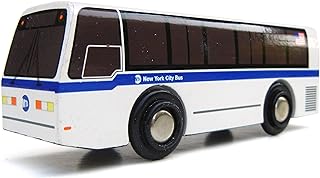A coalition of mass transit enthusiasts in Worcester is advocating for an enhanced bus service, urging the city to consider implementing a bus rapid transit system similar to the MBTA’s Silver Line. This initiative aims to introduce buses operating in dedicated lanes with priority signals for quicker travel, particularly catering to remote areas like UMass Chan Medical School and Worcester State University.
Justin Hollander, an urban planning professor from Tufts University leading the charge for the new service, emphasizes the potential safety benefits by reducing car usage and subsequently lowering emissions and traffic incidents. This move aligns with a national trend where various cities, including Miami and Cleveland, have embraced bus rapid transit as a cost-effective means to enhance public transportation infrastructure without the hefty price tag of subways or streetcars.
Despite the existing free bus service provided by the Worcester Regional Transit Authority (WRTA), residents like Will Talbot from Strong Towns Worcester express dissatisfaction with the current system’s frequency, citing long waits between buses. The WRTA acknowledges the need for improvement, with plans to enhance service frequency and evaluate route adjustments to better serve the community.
While acknowledging challenges such as narrow roadways that may hinder the implementation of bus-only lanes, WRTA’s administrator, Joshua Rickman, underscores the agency’s commitment to exploring the feasibility of bus rapid transit components along key corridors as part of their service enhancement strategy.
Advocates are resolute in their advocacy for bus rapid transit and are prepared to engage an alternative operator if the WRTA opts against the new system. The coalition is actively engaging in community outreach and developing a detailed plan outlining the operational framework for the proposed service. By initiating a potential pilot program, they aim to gauge local transit leaders’ interest in embracing this innovative approach.
Concerns have been raised regarding the financial sustainability of the new system, with some residents apprehensive about a potential return to fare collection to fund the initiative. Despite these challenges, Hollander remains optimistic about Worcester’s potential to enhance infrastructure and mobility for its residents, emphasizing the attainability of these goals for a city of Worcester’s stature.
As the push for bus rapid transit gains momentum in Worcester, the city stands at a pivotal juncture where decisions made today could significantly shape its public transportation landscape for years to come. With a strong community backing and a clear vision for a more efficient and sustainable transit system, Worcester has the opportunity to set a new standard for accessible and environmentally friendly urban mobility.
📰 Related Articles
- Daegu Implements Cash-Free Bus System for Enhanced Commuting
- Thailand Tourism Advocates Push for Transport Reforms Amid Scams
- Jetboil Flash 1.0: Enhanced Safety and Rapid Boiling Efficiency
- Chinese Scientists Develop Quantum-Resistant Blockchain System for Enhanced Security
- Advocates Push for Quebec to Cover Two Hearing Aids



